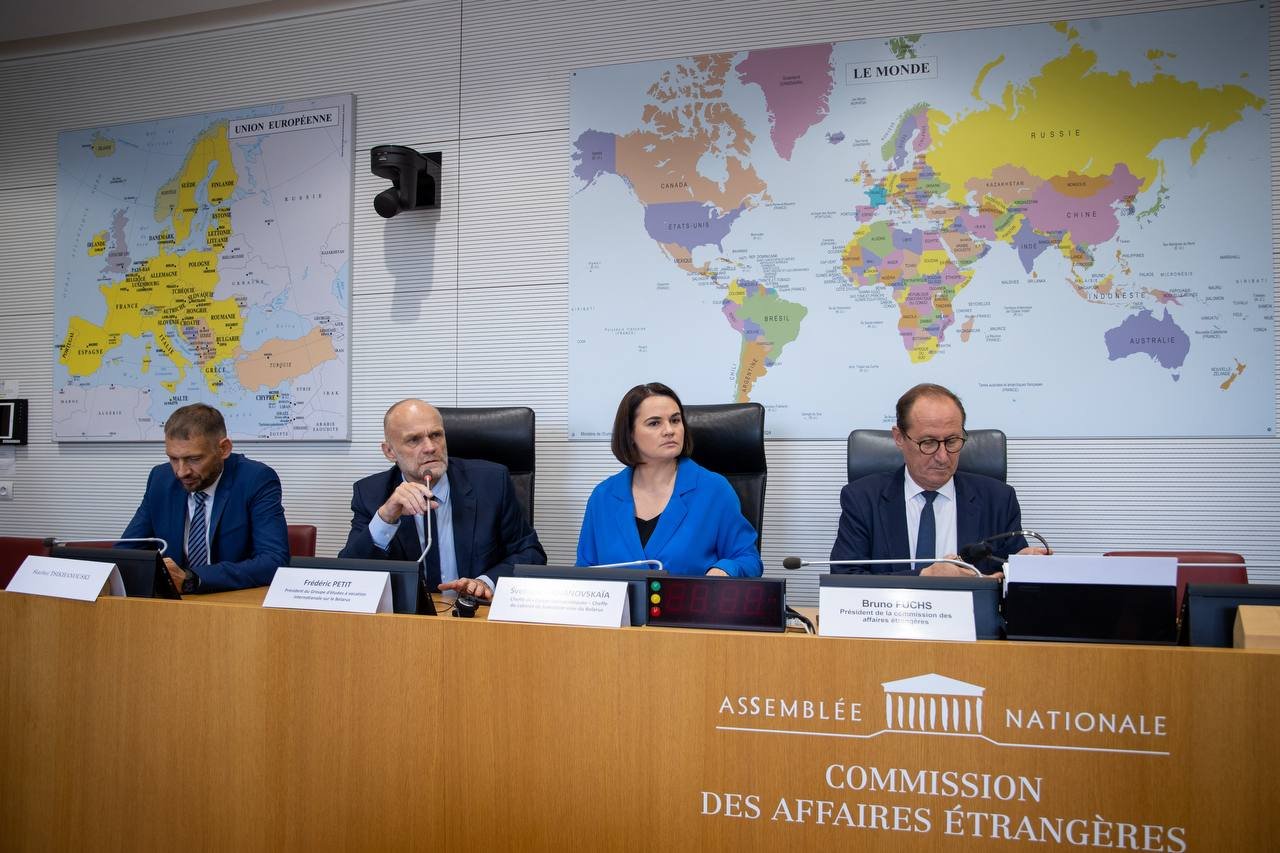Today, Sviatlana Tsikhanouskaya began her visit to France to take part in the third meeting of the Alliance of Parliamentary Groups “For Democratic Belarus” in Paris, together with Siarhei Tsikhanouski. She delivered an opening address focused on the political situation in Belarus and the country’s European prospects.
- On the situation inside the country:
“The situation in Belarus is difficult but not hopeless. On one side, there is Lukashenka, who is selling out our independence, dragging the country into war, and continuing repression. On the other – the Belarusian people, who want peace and a European future. People cannot resist openly, but they have not given up. They are simply waiting for their moment”.
- On possible changes:
“The situation in Belarus can change very quickly. Dictatorships usually fall when no one expects it. The question is not whether change will come, but when and how. Our mission is to be ready for that moment – to show Belarusians an alternative: not dictatorship, not the ‘Russian world,’ but Europe”.
- On the European alternative:
“The more Europe opens up to Belarusians now, the stronger the pro-European choice will be inside the country. And that means greater security for Europe itself, Ukraine, and the whole region”.
Ms. Tsikhanouskaya also proposed a number of practical steps to help European partners maintain focus on Belarus, support Belarusian civil society, and prepare the ground for democratic change:
“First – let our messages be clear and firm: Lukashenka is not a president. His ‘parliament’ is not a real parliament. And Belarusians are not Lukashenka.
Second – deepen cooperation with Belarusian democratic institutions.
Third – support Belarusians living in France.
Fourth – invest in Belarusian civil society and human rights defenders.
Fifth – keep Belarus in the focus of political attention.
And finally – support our campaign for European integration”.
The meeting was also attended by representatives of the democratic forces, the United Transitional Cabinet, the Coordination Council, People’s Embassies, the Euro-Atlantic Affairs Agency, former political prisoners, diaspora members, and journalists.








